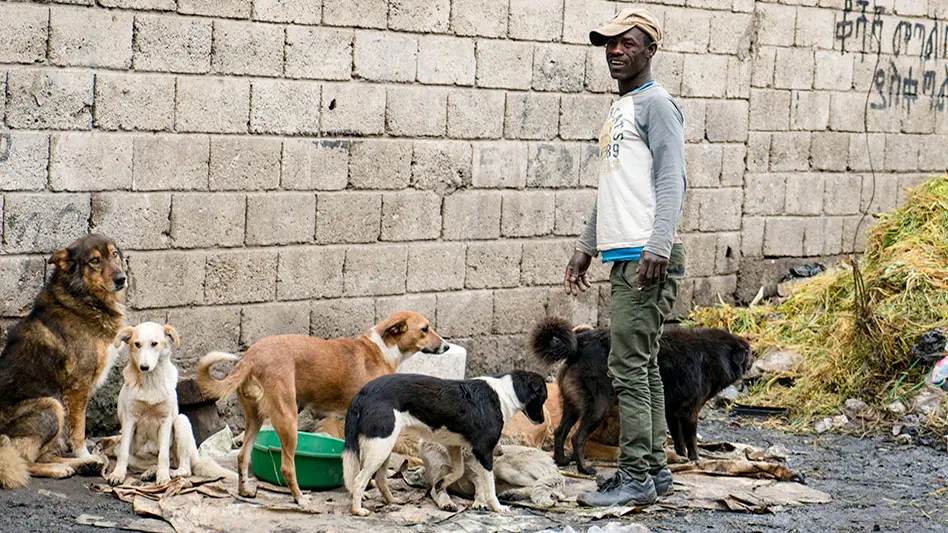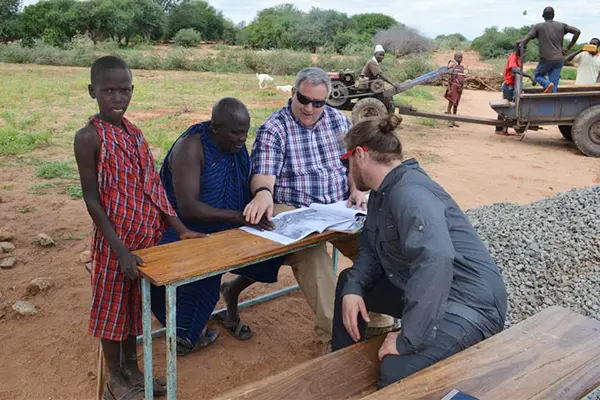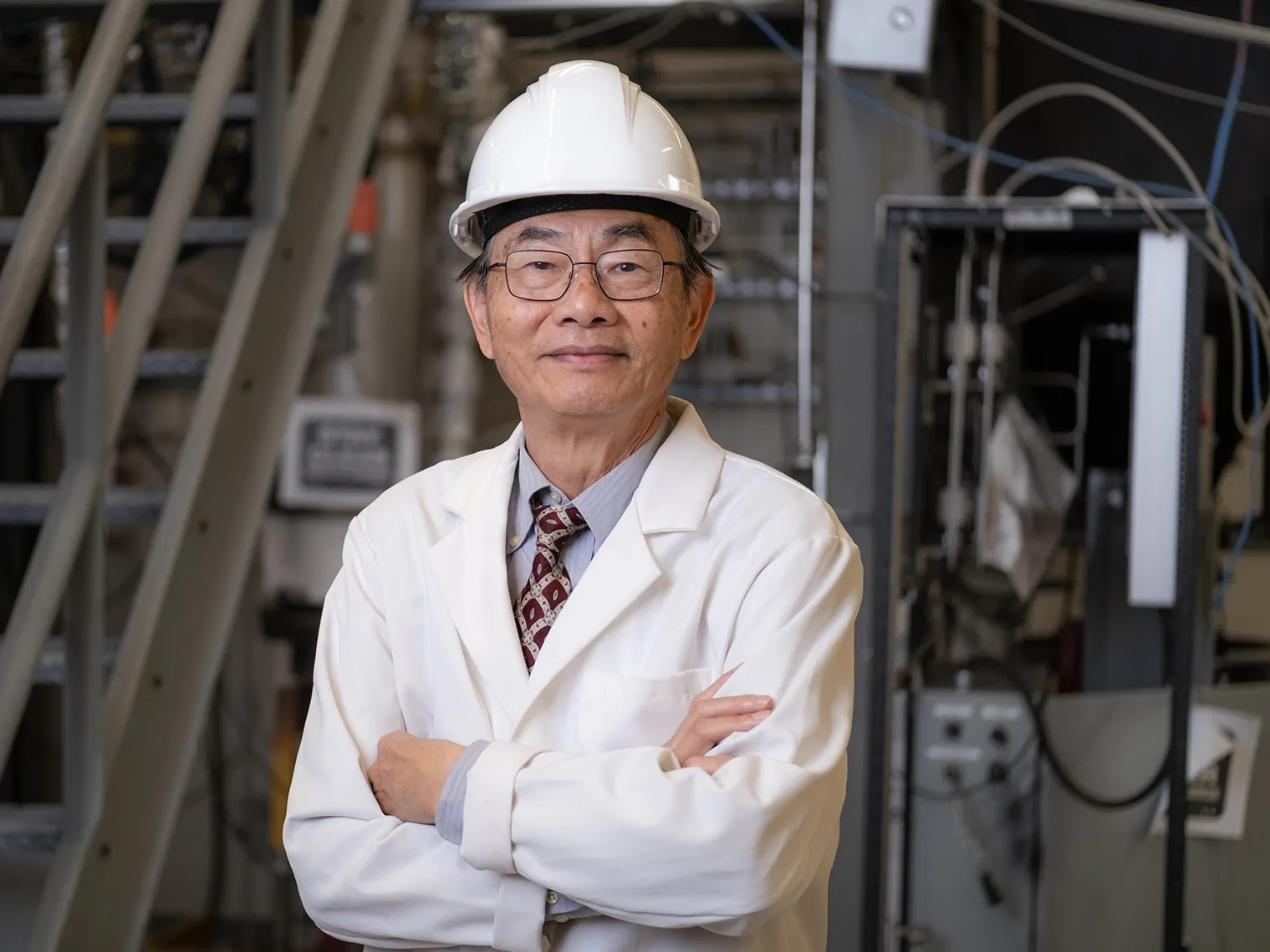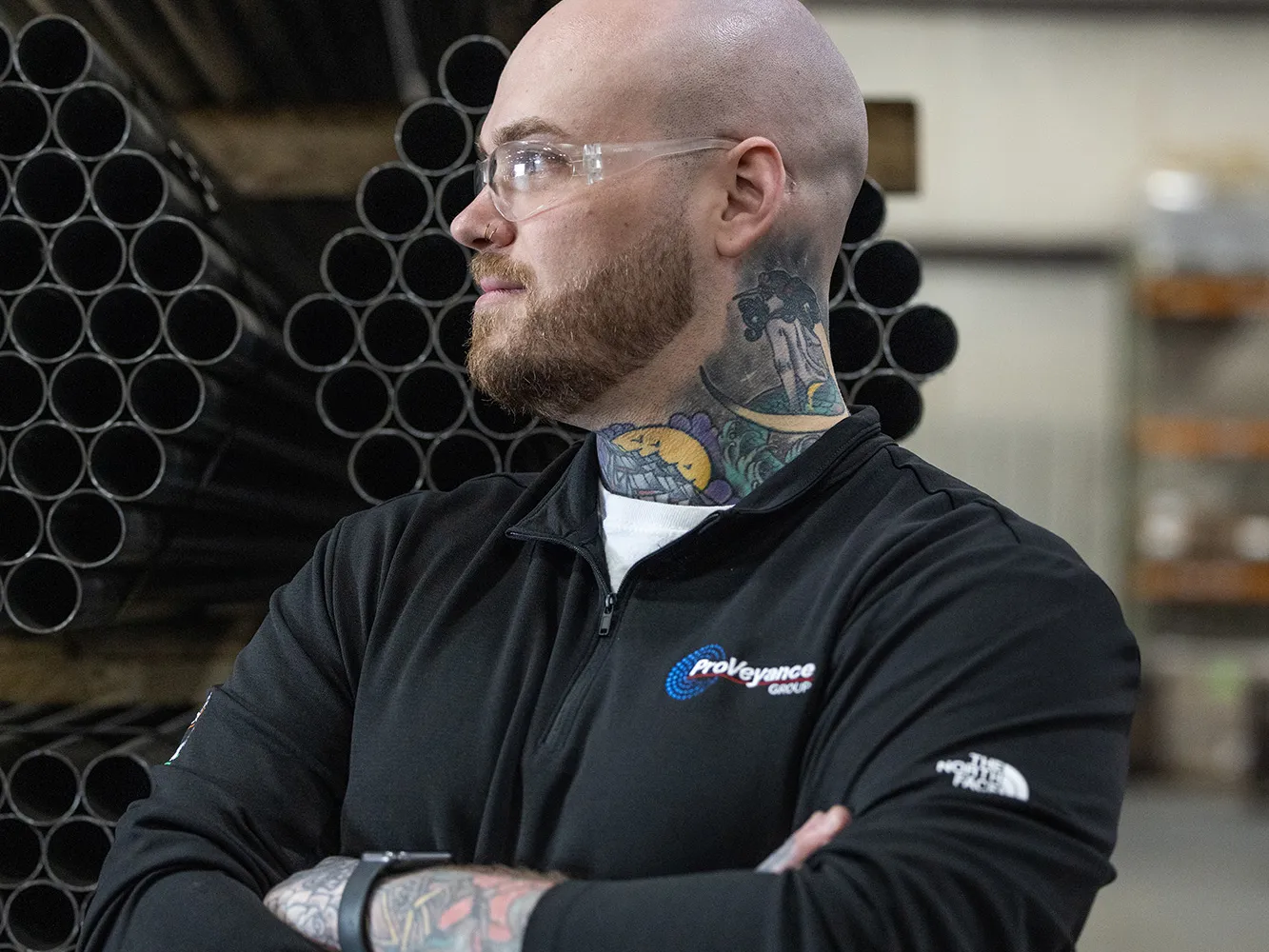Meeting the world’s challenges
Ohio State researchers and students are solving large-scale problems to improve the world around us. Here are a handful of examples.

Ohio State students and community members install the roof of a rain-water harvesting tank at the primary school in Leserwei, Tanzania. (Photo by Robin Wood)
Sustainability
Your next pair of winter boots may come from rubber grown in Ohio if Katrina Cornish has her way. An authority on the production of alternate natural rubber, she has discovered a way to make the material from the hydroponic farming of dandelions, a crop she calls “Buckeye Gold.” The process would halt the destruction of millions of acres of rain forests so rubber trees can be planted in southeast Asia.
“Many big companies have signed on to the idea that if the rubber comes from any new deforestation, they don’t want it. Demand is going up, so we have to be able to farm it,” says Cornish, an Ohio Research Scholar, endowed chair and professor in the College of Food, Agricultural and Environmental Sciences.
Cornish also calls for sustainable rubber farms on millions of acres across the United States, good news for makers of the 50,000 products that contain the material.
Water quality
Try to picture how dire living conditions can be for those with no access to clean water. The plight of countless African villagers far exceeds what you could imagine, says Martin Kress, executive director of the Global Water Institute at Ohio State.
“We have a list of 5,000 Tanzanian villages that haven’t had water for three to five years,” Kress says. “They have to walk endlessly to find water, most often contaminated.”
Now, lives are being transformed through the institute’s Sustainable Village Water Systems Program, which involves faculty and students from eight colleges across the university. The project is working with 40 villages to secure clean water by replacing broken wells that serve more than 120,000 Tanzanians. Organizers hope to expand to 125 villages and address additional concerns such as sanitation and renewable energy.
“With sustainable access to water, we address basic needs, improve health and can teach people how to farm,” Kress says. “Before, they could scarcely grow maize. Now they grow cabbages, tomatoes, onions and sweet potatoes. This increases nutritional value for kids and creates economic opportunities for moms and dads.”

Ohio State’s Global One Health team works with local partners in Ethiopia to vaccinate thousands of dogs each year and slow the spread of life-threatening rabies. (Photo by Rick Harrison)
Rabies prevention
Rabies is deadly for people who live in Africa and Asia. In Ethiopia alone, more than 1,500 children die each year after contracting the disease, mainly through dog bites.
To help communities control rabies, Ohio State’s Global One Health program is training professionals in-country as well as performing mass vaccinations, increasing education and developing surveillance and monitoring. More than 22,000 dogs have been vaccinated and 875 people have received training since the initiative began 10 years ago.
Executive Director Wondwossen Gebreyes, a professor in the College of Veterinary Medicine, attributes the success to the involvement of faculty and students from 13 colleges at Ohio State.
Refugee education
Just 10 percent of refugees 14 to 19 years old who enter the United States pursue higher education. That’s because many of them lack the knowledge and confidence needed to navigate the process, says Hollie Nyseth Brehm, an associate professor of sociology.
Three years ago, Brehm and a group of students became mentors to refugees working to assimilate into their new community. Today, the group — now a nonprofit called Refuge — does much more. Twenty-five refugees and immigrants this year will benefit from weekly mentoring and an immersion experience that enables them to apply for scholarships, attend classes and access speakers, discussions and activities.
Opioids
Ohio’s opioid crisis is devastating families and children who rely on the state’s strained child welfare system. Many counties also don’t have funding to deal with rising drug court caseloads, which prolongs family separation.
Ohio State’s Enhancing Permanency in Children and Families program is addressing the problem from several angles, says Bridget Freisthler, professor and associate dean for research in the College of Social Work. Operating in partnership with children services agencies and professionals in Fairfield and Pickaway counties, the approach involves medication-assisted treatment that reduces the time children spend out of the home as well as a pipeline of peer recovery support mentors and servicesfor caregivers.
The university also is a partner in an intervention program that provides trauma counseling to children and helps parents on their path to recovery. The work is saving and changing lives, Freisthler says.

Support their work
Ohio State reaches far beyond our Columbus and regional campuses. And your support to our global initiatives maintains our ability to provide enriching study abroad programs, fund the university’s Global Gateways, support humanitarian efforts, study climate change and more.


